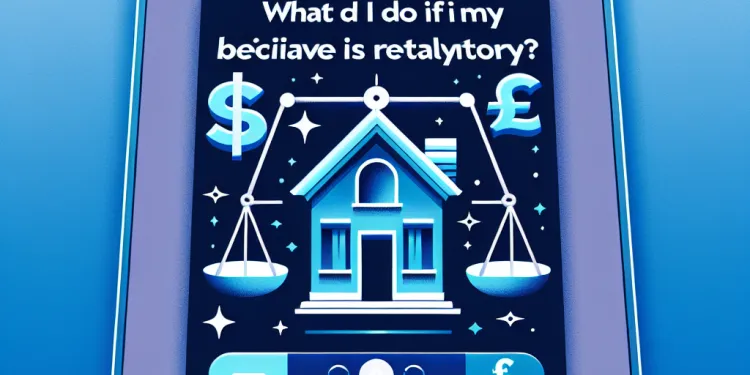
Find Help
More Items From Ergsy search
-
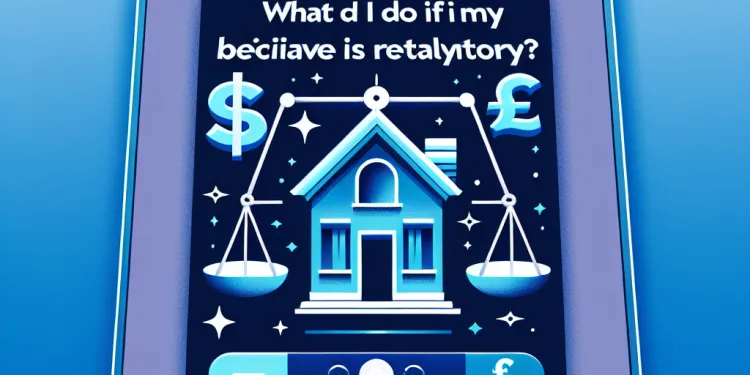
What can I do if I believe my eviction is retaliatory?
Relevance: 100%
-
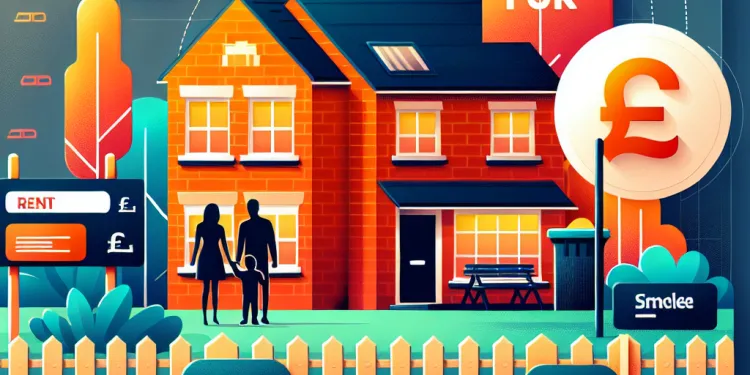
Can a landlord evict me for complaining about property conditions?
Relevance: 67%
-

What can I do if my landlord wants to evict me?
Relevance: 49%
-

What are my rights during the eviction process?
Relevance: 49%
-

How can I contest or challenge the eviction?
Relevance: 46%
-
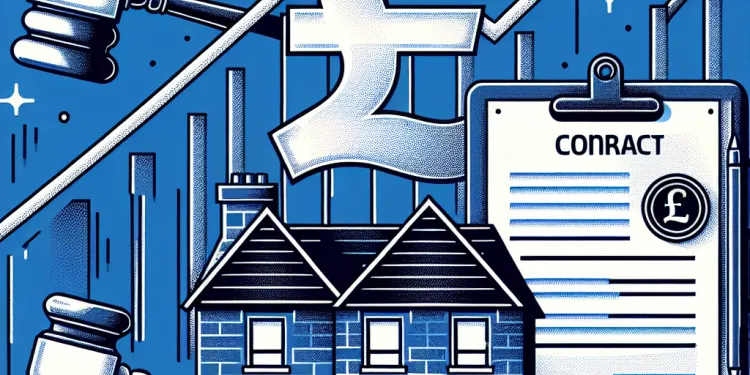
Are there changes to the eviction process?
Relevance: 45%
-

Can my landlord evict me without providing a reason?
Relevance: 43%
-

How can I prepare for an eviction court hearing?
Relevance: 42%
-

What are the consequences of having an eviction on my record?
Relevance: 41%
-

Has the notice period for eviction changed?
Relevance: 41%
-

Does filing for bankruptcy stop an eviction?
Relevance: 41%
-

Can I appeal a court's eviction decision?
Relevance: 41%
-

Can eviction affect my credit score?
Relevance: 40%
-

Can I stop an eviction if I catch up on rent payments?
Relevance: 40%
-
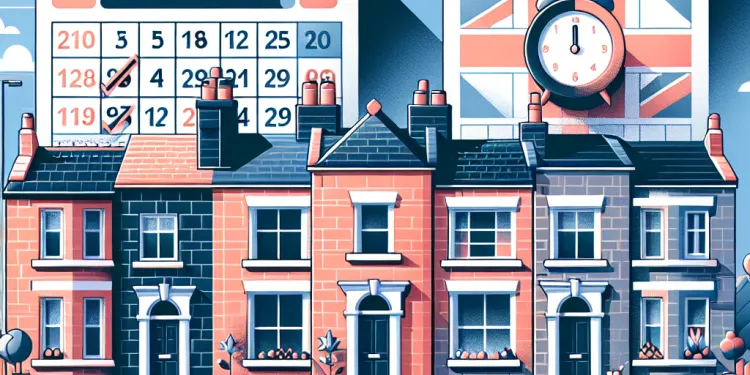
What happens if I stay beyond the eviction deadline?
Relevance: 40%
-
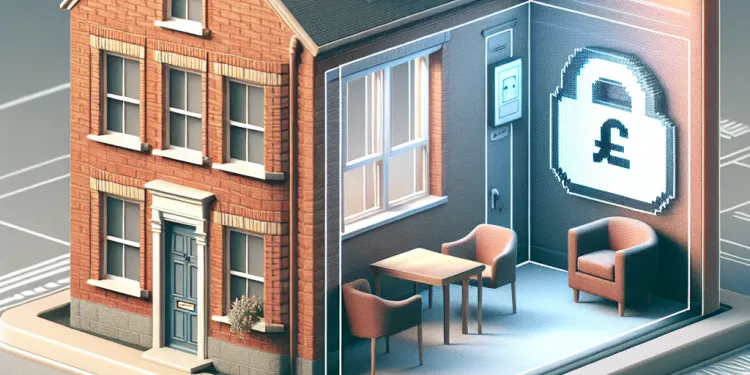
Can a landlord lock me out or remove my belongings to evict me?
Relevance: 39%
-

What should I do if I receive an eviction notice from my landlord?
Relevance: 39%
-
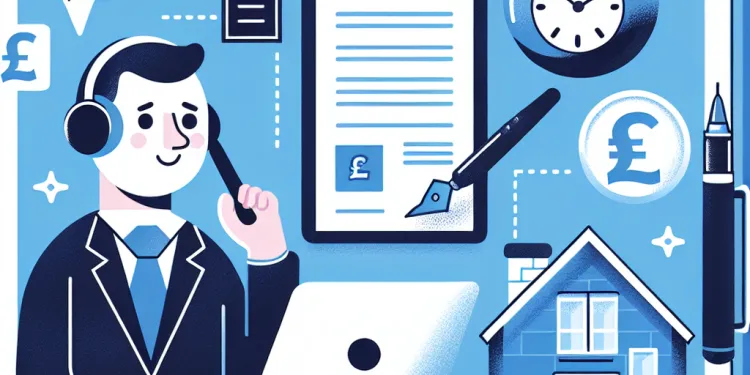
Can I negotiate with my landlord to avoid eviction?
Relevance: 38%
-

Is mediation an option to resolve eviction disputes?
Relevance: 38%
-

Are there any government programs that can help me avoid eviction?
Relevance: 37%
-

How long do I have to move out after receiving an eviction notice?
Relevance: 37%
-

What should I do if I can't afford a lawyer for the eviction process?
Relevance: 37%
-

How do I find alternative housing quickly if evicted?
Relevance: 36%
-

How are landlord-tenant issues resolved in property litigation?
Relevance: 19%
-

What are the new Tenancy Law Reforms in the UK in 2025?
Relevance: 18%
-

What can tenants do if they are affected by the cuts?
Relevance: 17%
-

What new protections are included for tenants?
Relevance: 16%
-

Understanding Your Rights: Legal Support for Families During Economic Turbulence
Relevance: 15%
-

How does the reform impact renting costs?
Relevance: 12%
-
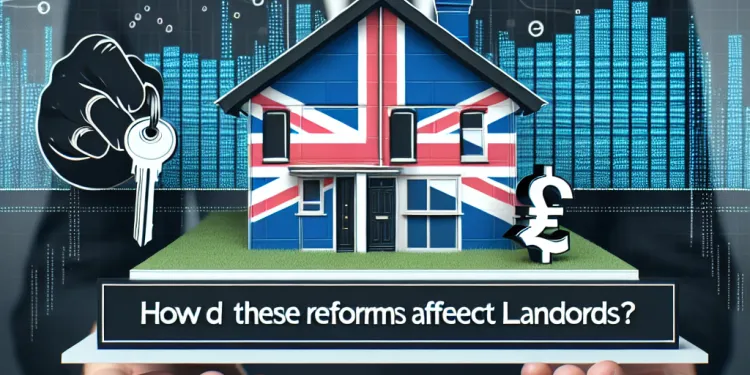
How do these reforms affect landlords?
Relevance: 11%
-

Landlord Licensing Laws Under Review as Tenants Call for Stronger Protections
Relevance: 11%
-

Why might someone need a property litigator?
Relevance: 9%
-

What happens if an employer pays below the National Living Wage?
Relevance: 9%
-
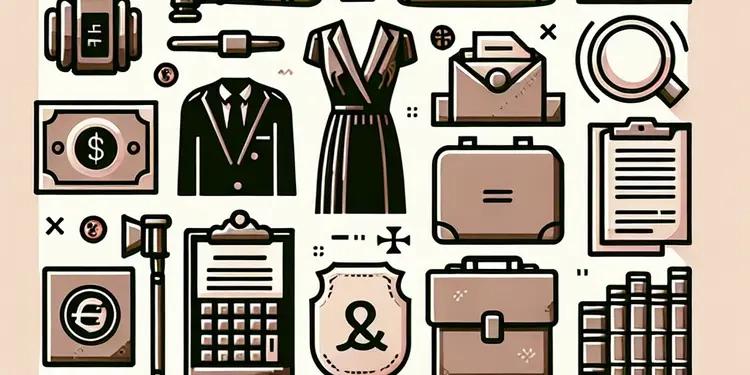
What is the role of Bailiffs?
Relevance: 9%
-

Are there reforms concerning subletting?
Relevance: 9%
-

How are disputes between landlords and tenants handled?
Relevance: 9%
-

Can property litigation involve commercial real estate?
Relevance: 9%
-

What is the relationship between rising rents and housing benefit cuts?
Relevance: 8%
-

Watchdog Raises Concerns Over Commercial Landlord Regulations
Relevance: 6%
-

How will the proposed cuts impact tenants?
Relevance: 6%
Understanding Retaliatory Eviction
Retaliatory eviction occurs when a landlord attempts to evict a tenant as a response to the tenant exercising their legal rights, such as requesting repairs, filing a complaint regarding housing conditions, or reporting the landlord to authorities. In the UK, tenants are legally protected from such evictions, and understanding these protections is crucial in addressing the issue.
Know Your Rights
In the UK, the Deregulation Act 2015 provides protection for tenants against retaliatory evictions. If you have reported a problem with your property to your landlord and they serve you with a Section 21 notice shortly after, this could be considered retaliatory. The law protects tenants by making a Section 21 eviction notice invalid for six months if the local council serves an improvement notice or notice of emergency remedial action on the property.
Gather Evidence
To support your claim of retaliatory eviction, it is important to gather and document evidence. This includes keeping records of all communications with your landlord, such as emails and letters, particularly those concerning repair requests or complaints. Additionally, any formal reports or complaints made to local authorities or housing bodies should be documented. Photographs or videos of disrepair or unsafe conditions can also serve as valuable evidence.
Seek Legal Advice
Consulting a legal professional or housing advisor can provide valuable guidance. They can assess your situation, help you understand your rights, and advise on the best course of action. Organisations such as Shelter, Citizens Advice, and local legal aid services offer advice and support to tenants facing retaliatory eviction. They can help you understand the legal framework and represent you if necessary.
Contact the Local Council
If you suspect your eviction is retaliatory, contact your local council. Councils have the authority to issue improvement notices if they find housing conditions unacceptable. A notice from the council can protect you from a Section 21 eviction for six months. Ensure you maintain records of all communication with the council and any inspections or actions they undertake.
Defend Against an Eviction Notice
If you receive an eviction notice, it is crucial to respond promptly. You have the right to challenge the eviction in court by providing evidence of the retaliatory nature of the eviction. Legal assistance can help you through this process, bolster your case, and potentially secure your right to remain in the property.
Conclusion
If you believe your eviction is retaliatory, it is important to act quickly. Knowing your rights, gathering evidence, seeking legal advice, and reaching out to local authorities can strengthen your position. The law provides protections for tenants against retaliatory actions, and utilizing these resources can help maintain your tenancy and ensure fair treatment under UK housing laws.
What is Retaliatory Eviction?
Retaliatory eviction is when a landlord tries to make a tenant leave because the tenant asked for repairs or complained about the property. In the UK, there are laws to protect tenants from such evictions. Knowing these laws helps you deal with the problem.
Learn About Your Rights
In the UK, there is a law called the Deregulation Act 2015. This law stops landlords from evicting tenants as a punishment. If you told your landlord about a problem and then get a Section 21 eviction notice, this could be retaliatory. If the local council tells the landlord to fix something, the Section 21 notice cannot be used for six months.
Collect Proof
To show that your eviction is retaliatory, collect proof. Save all emails and letters with your landlord about repairs or complaints. Keep any reports you made to local authorities. Photos or videos of problems in your home can also help.
Get Legal Help
Talk to a lawyer or housing advisor for help. They can explain your rights and give advice on what to do next. Groups like Shelter or Citizens Advice can also support you. They can help you understand the law and can represent you if needed.
Reach Out to the Local Council
If you think your eviction is retaliatory, contact your local council. They can issue notices to landlords if the home is in bad condition. This notice can stop a Section 21 eviction for six months. Keep records of all talks with the council and any checks they do.
React to an Eviction Notice
If you get an eviction notice, act fast. You can challenge it in court with proof that it's retaliatory. Legal help can guide you and strengthen your case. This can help you stay in your home.
Final Thoughts
If you think your eviction is retaliatory, act quickly. Know your rights, collect proof, and get legal advice. Contacting the local council can also help. The law protects tenants from retaliatory evictions. Using these tools can help you stay in your home and be treated fairly.
Frequently Asked Questions
What is a retaliatory eviction?
A retaliatory eviction occurs when a landlord attempts to evict a tenant as a reaction to the tenant exercising their legal rights, such as complaining about unsafe living conditions or reporting the landlord for violating housing laws.
How can I tell if my eviction is retaliatory?
If you recently engaged in a protected activity, like filing a complaint against the landlord, and shortly after, received an eviction notice, it might be retaliatory. Reviewing the timeline and any communication with your landlord may provide clues.
What should I do if I suspect my landlord is evicting me in retaliation?
Document all interactions with your landlord and gather evidence of any protected activities you engaged in. Consider consulting with a tenant rights attorney or local tenants' union for guidance on your situation.
Are there laws protecting me from retaliatory eviction?
Yes, many jurisdictions have laws that protect tenants from retaliatory eviction. These laws may prevent landlords from evicting tenants in retaliation for reporting issues or asserting their rights.
Can I still be evicted if my landlord claims different reasons?
Even if the landlord cites other reasons, if the timing suggests retaliation for a protected activity, you may have grounds to challenge the eviction as retaliatory.
What evidence can support my case against retaliatory eviction?
Evidence can include records of communication with your landlord, notices you've filed regarding complaints, witness statements, and any other documentation of protected activities.
Should I continue paying rent if I claim the eviction is retaliatory?
Yes, you should continue to pay rent on time while you address the eviction notice. Non-payment can undermine your case and provide the landlord with legitimate grounds for eviction.
How can a lawyer assist me with a retaliatory eviction claim?
A lawyer experienced in landlord-tenant law can help evaluate your case, gather evidence, and represent you in court if needed, improving your chances of successfully contesting the eviction.
How can I find legal assistance for a retaliatory eviction case?
Contact local legal aid organizations, tenants' rights groups, or the state bar association to find experienced attorneys or resources for tenant-landlord disputes.
What are examples of protected activities that might trigger retaliatory eviction?
Protected activities can include reporting health or safety violations, joining a tenants' union, withholding rent for unsafe conditions, or filing a lawsuit against the landlord.
Can I sue my landlord for retaliatory eviction?
Yes, if you believe the eviction is retaliatory and can prove it, you may be able to sue your landlord under state or local laws protecting against retaliatory actions.
Is it possible to settle a retaliatory eviction case out of court?
Yes, many disputes can be settled through negotiation or mediation before going to court, which can be less costly and time-consuming for both parties.
What role do local tenant rights groups play in cases of retaliatory eviction?
Local tenant rights groups can offer advice, resources, and support to tenants facing retaliatory evictions, helping them understand their rights and options.
What timelines are important in retaliatory eviction cases?
The timeline between the protected activity and the eviction notice is crucial. If the eviction follows soon after the protected activity, it may suggest retaliation.
Can a landlord modify the reason for eviction after I claim retaliation?
Landlords might attempt to justify the eviction with other reasons, but you can contest these if there's evidence that the primary motive was retaliatory.
Does retaliatory eviction apply to all types of rental agreements?
In general, yes, but the specific protections may vary depending on the type of lease or rental agreement and local or state laws.
What should I do if facing a retaliatory eviction and also want to move?
Even if you plan to move, you may still benefit from contesting a retaliatory eviction to avoid negative impacts on your rental history or credit.
How long does a retaliatory eviction process usually take?
The timeline can vary depending on case complexity, court schedules, and whether the case is settled out of court or goes to trial.
Do I need to inform my landlord that I believe the eviction is retaliatory?
While not required, notifying your landlord of your belief might initiate a dialog to address grievances, but prepare evidence and legal support before doing so.
What impact does a retaliatory eviction have on my future rentals?
If not contested, an eviction may adversely affect your credit score and rental history, impacting future housing opportunities.
What is a retaliatory eviction?
A retaliatory eviction is when a landlord tells a tenant to leave because the tenant asked for repairs or complained about problems. This is not allowed.
If you think this is happening, you can talk to someone for help. You could speak to a tenant support group or a lawyer.
A retaliatory eviction happens when a landlord tries to make a tenant leave their home because the tenant did something they have a right to do. This could be telling the landlord about problems like unsafe living conditions or saying they broke housing rules.
If you are in this situation, it can help to talk to someone you trust. You can also use tools like picture charts or get help from a support worker to understand your rights and what you can do next.
How do I know if I'm being evicted unfairly?
Sometimes, a landlord might try to make a tenant leave for the wrong reasons. This is called an unfair eviction. Here is how you can tell:
- Did you complain about a problem in your home, like a broken heater?
- Did you ask for repairs that the landlord didn't make?
- Did you join a tenants' group or talk with other tenants about problems?
If your eviction notice came soon after any of these actions, it might be unfair. Talk to a helper, like a lawyer or a tenant advisor, if you think your eviction is unfair.
If you told your landlord about a problem or filed a complaint and soon after you got a notice saying you have to move out, it might be because the landlord is upset with you. Look at when things happened and any messages you have from your landlord. This can help you understand better.
What if I think my landlord wants to make me leave because they're upset with me?
Keep a record of all the times you talk to your landlord. Make sure you have proof of any important things you did. You can ask a lawyer who knows about tenant rights or a local tenants' group for help.
Do laws stop my landlord from kicking me out if I complain?
If you tell your landlord about a problem and worry they might ask you to leave, there are rules to protect you.
Here are some helpful things you can do:
- Ask someone you trust for help.
- Talk to a housing advisor. They can explain your rights.
- Use websites like Citizen's Advice for more information.
Yes, in many places there are rules that stop landlords from unfairly making people move out of their homes. These rules mean landlords can't make someone leave just because they reported a problem or stood up for their rights.
Can I be kicked out if my landlord gives new reasons?
If your landlord says new things about why you have to move, you might still have to leave your home.
If you are worried about this, you can get help. Some people or places can help you understand your rights and what to do. These include:
- A friend or family member
- A local housing advisor
- A tenant support helpline
They can help you know what you can do next.
If your landlord is trying to evict you and it seems like it’s because you did something you have a right to do, you might be able to say the eviction is unfair.
What can help me if my landlord tries to make me leave for complaining?
Proof can be things like letters or emails to your landlord, notes you wrote about problems, stories from people who saw what happened, and any other papers that show important things.
Do I need to keep paying rent if my landlord is trying to evict me because I'm complaining?
If you think your landlord is being unfair and trying to evict you just because you spoke up, you might feel upset.
It's important to know that you should still pay your rent on time. If you stop paying, it can make things worse.
Here are some ways to help you:
- Write down and save all the letters and messages between you and your landlord.
- Talk to someone who knows about renting homes, like a housing advisor, to help you understand your rights.
- If writing is hard, ask a friend or family member to help you write down your thoughts.
Remember, paying rent on time is important, even if you think your landlord is not being fair.
Yes, you should keep paying your rent on time, even if you got an eviction notice. If you don't pay, it might make it easier for your landlord to make you leave.
How can a lawyer help me if my landlord is trying to make me leave because I complained?
If your landlord wants you to leave because you complained, a lawyer can help. Here is how:
- Talk to you: The lawyer will listen to your story and give advice.
- Explain your rights: The lawyer will tell you what your rights are.
- Help with papers: The lawyer can help fill out any forms you need.
- Talk for you: The lawyer can speak for you in court if needed.
Helpful tip: You can ask a family member or a friend to join you when you talk to the lawyer. They can help you understand better.
A lawyer who knows about landlords and tenants can help you. They can look at your case, find proof, and speak for you in court if needed. This can help you win against the eviction.
How can I get help with a retaliatory eviction?
If you need help because your landlord wants you to leave for unfair reasons, here’s what you can do:
1. Talk to a lawyer: Find a lawyer who knows about housing problems. They can help you understand what to do next.
2. Contact local advice groups: There are groups that help people with housing issues. They can give you free advice and support. Look for housing advice centers or tenant support groups.
3. Use online resources: Some websites offer easy legal tips and guides. Look for websites that help people with housing rights.
Need extra help? You can ask a friend or family member to help you understand what to do. They can read this with you and help you find the right help.
If you have problems with your landlord, you can get help. Talk to groups that help people with legal problems, or groups that stand up for renters. You can also ask the state’s group of lawyers to find someone who knows about renter issues.
Some tools that might help you are talking to a helper or using a computer to find places to help you. You can also try asking a friend or family member for support.
What activities can cause unfair eviction?
Protected activities are things you can do to stay safe and fair with your landlord. You can tell someone if there are health or safety problems where you live. You can join a group of renters to talk about your rights. You can stop paying rent if your home is not safe. You can also take your landlord to court if they do something wrong.
If you need help, you can talk to a trusted adult or use tools like speech-to-text or voice readers on your phone or computer.
Can I take my landlord to court for kicking me out unfairly?
If your landlord is making you leave because you complained, you might be able to go to court. Here are some steps that can help:
- Keep any letters or emails you send to your landlord.
- Write down dates and details of what happened.
- Ask someone you trust for help, like a friend or family member.
- You can also talk to a lawyer or a group that helps people with housing problems.
These things can help show why you think your landlord is being unfair.
Yes, you can ask a judge to help you if you think your landlord is being mean and trying to make you leave for a bad reason. You must show proof. There are laws that can help protect you.
Can you solve a retaliatory eviction case without going to court?
Yes, you can try to solve the problem without court. Here are some ways to help: - **Talk it out**: Have a calm chat with the other person. - **Get help**: Ask for a mediator to help you both talk. A mediator is someone who helps people solve problems. - **Write it down**: Make a written agreement that both sides sign. - **Ask for advice**: Talk to a lawyer or expert for help. These steps can sometimes help solve the issue without a judge.Yes, people can solve many arguments by talking or getting help from someone else before going to a judge. This way is cheaper and quicker for everyone.
How do local tenant rights groups help if someone is being unfairly evicted?
Local tenant rights groups can help people who rent homes and are being unfairly asked to leave. They give advice and support to renters. If you feel scared or confused, they can help explain your rights. They can also talk to your landlord for you. You can use simple language and ask questions if you don't understand. These groups can help protect you from being treated unfairly.
Local groups can help people who rent homes. They give advice and support if someone is getting kicked out unfairly. They help renters know their rights and what they can do next.
What timelines are important in retaliatory eviction cases?
Key Dates to Remember:
1. Time to Fix Problems: When you tell your landlord about something wrong, they usually have 14 days to fix it.
2. Notice to Leave: If your landlord asks you to leave, they must often give you 30 days notice.
3. File a Complaint: If you think the eviction is unfair, you might have to act fast and tell someone in 1 or 2 weeks.
Tips to Help:
● Use a Calendar: Mark important dates on a calendar so you remember.
● Ask for Help: Talk to a trusted adult or someone who knows about housing if you're unsure.
● Keep Records: Write down what happens and keep letters or emails.
The time between when someone does something that is protected and when they get an eviction notice is important. If the eviction notice comes soon after the protected activity, it may be a sign that it is done to get back at the person.
Can a landlord change the reason for making me leave after I say they are being unfair?
Sometimes, landlords might try to give other reasons for kicking you out. But if the real reason is because you complained or stood up for your rights, you can fight this. You need proof to show it was done to get back at you.
Does retaliatory eviction happen with every type of rental agreement?
Yes, you usually have some protection, but it can change based on your rental agreement and the rules where you live.
What to do if your landlord is angry and wants you to leave and you also want to move?
If your landlord is not happy with you and asks you to leave, here are some tips:
- Stay calm: Take deep breaths. It's important to stay calm.
- Talk about it: If you feel safe, talk to your landlord. Try to understand why they want you to leave.
- Ask for help: You can talk to a trusted friend, family member, or a support worker.
- Know your rights: Every tenant has rights. You can contact a local advice center to learn more.
- Plan your move: Make a list of things you need to do to find a new home. Ask for help if you need it.
- Use tools: You can use calendars or reminders to keep track of important dates.
Remember, you are not alone, and there are people who can help you.
If you think you have to move, you might still want to stop a bad eviction. This can help you keep your rental record and credit looking good.
How long does it take to evict someone because they complained?
If a landlord tries to make you leave because you complained about something, this is called "retaliatory eviction." This process can take some time. Here are some tips to help:
- Use a calendar to track important dates.
- Ask a friend or family member to help you understand what's happening.
- Check if there are support groups or services that can help you.
The time it takes can change. It depends on how hard the case is, when the court is free, and if the case is finished quickly or goes to court.
Should I tell my landlord if I think they are trying to evict me as revenge?
If you think your landlord is trying to make you leave because you did something they didn't like, you should let them know. It's good to talk about it.
Here are some ideas to help you:
- Ask someone you trust to help you write a letter or email to your landlord.
- Keep a copy of what you send.
- Use pictures or simple words to explain how you feel.
- Tell someone who knows the law, like a friend or advisor, who can help you.
It is not a rule, but telling your landlord what you think can start a talk to fix problems. Make sure you have proof and some help from the law before you do this.
How does being forced to move out affect renting homes later?
If you have to leave your home and don’t challenge it, it can hurt your credit score. This might make it hard to rent a new home later.
Useful Links
This website offers general information and is not a substitute for professional advice.
Always seek guidance from qualified professionals.
If you have any medical concerns or need urgent help, contact a healthcare professional or emergency services immediately.
Some of this content was generated with AI assistance. We’ve done our best to keep it accurate, helpful, and human-friendly.
- Ergsy carfully checks the information in the videos we provide here.
- Videos shown by Youtube after a video has completed, have NOT been reviewed by ERGSY.
- To view, click the arrow in centre of video.
- Most of the videos you find here will have subtitles and/or closed captions available.
- You may need to turn these on, and choose your preferred language.
- Go to the video you'd like to watch.
- If closed captions (CC) are available, settings will be visible on the bottom right of the video player.
- To turn on Captions, click settings .
- To turn off Captions, click settings again.
More Items From Ergsy search
-

What can I do if I believe my eviction is retaliatory?
Relevance: 100%
-

Can a landlord evict me for complaining about property conditions?
Relevance: 67%
-

What can I do if my landlord wants to evict me?
Relevance: 49%
-

What are my rights during the eviction process?
Relevance: 49%
-

How can I contest or challenge the eviction?
Relevance: 46%
-

Are there changes to the eviction process?
Relevance: 45%
-

Can my landlord evict me without providing a reason?
Relevance: 43%
-

How can I prepare for an eviction court hearing?
Relevance: 42%
-

What are the consequences of having an eviction on my record?
Relevance: 41%
-

Has the notice period for eviction changed?
Relevance: 41%
-

Does filing for bankruptcy stop an eviction?
Relevance: 41%
-

Can I appeal a court's eviction decision?
Relevance: 41%
-

Can eviction affect my credit score?
Relevance: 40%
-

Can I stop an eviction if I catch up on rent payments?
Relevance: 40%
-

What happens if I stay beyond the eviction deadline?
Relevance: 40%
-

Can a landlord lock me out or remove my belongings to evict me?
Relevance: 39%
-

What should I do if I receive an eviction notice from my landlord?
Relevance: 39%
-

Can I negotiate with my landlord to avoid eviction?
Relevance: 38%
-

Is mediation an option to resolve eviction disputes?
Relevance: 38%
-

Are there any government programs that can help me avoid eviction?
Relevance: 37%
-

How long do I have to move out after receiving an eviction notice?
Relevance: 37%
-

What should I do if I can't afford a lawyer for the eviction process?
Relevance: 37%
-

How do I find alternative housing quickly if evicted?
Relevance: 36%
-

How are landlord-tenant issues resolved in property litigation?
Relevance: 19%
-

What are the new Tenancy Law Reforms in the UK in 2025?
Relevance: 18%
-

What can tenants do if they are affected by the cuts?
Relevance: 17%
-

What new protections are included for tenants?
Relevance: 16%
-

Understanding Your Rights: Legal Support for Families During Economic Turbulence
Relevance: 15%
-

How does the reform impact renting costs?
Relevance: 12%
-

How do these reforms affect landlords?
Relevance: 11%
-

Landlord Licensing Laws Under Review as Tenants Call for Stronger Protections
Relevance: 11%
-

Why might someone need a property litigator?
Relevance: 9%
-

What happens if an employer pays below the National Living Wage?
Relevance: 9%
-

What is the role of Bailiffs?
Relevance: 9%
-

Are there reforms concerning subletting?
Relevance: 9%
-

How are disputes between landlords and tenants handled?
Relevance: 9%
-

Can property litigation involve commercial real estate?
Relevance: 9%
-

What is the relationship between rising rents and housing benefit cuts?
Relevance: 8%
-

Watchdog Raises Concerns Over Commercial Landlord Regulations
Relevance: 6%
-

How will the proposed cuts impact tenants?
Relevance: 6%


